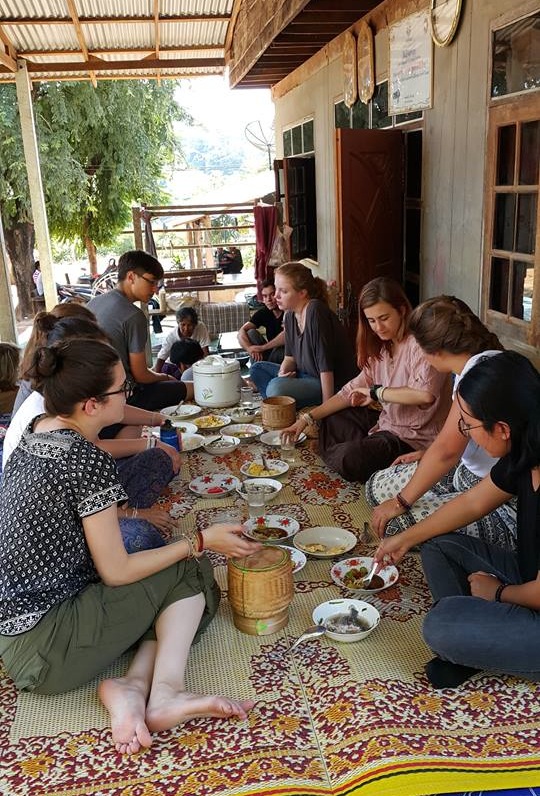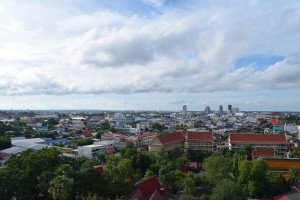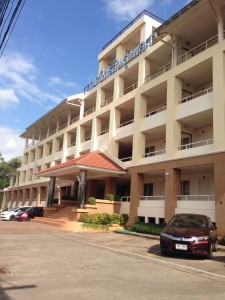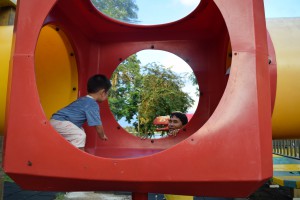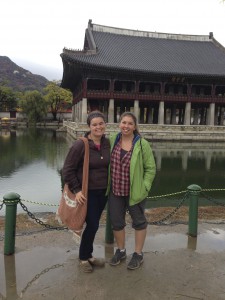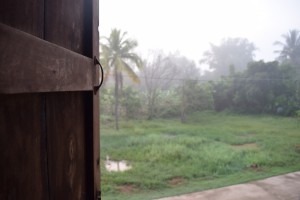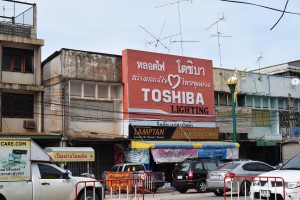Before I arrived in Thailand for my semester abroad, I had only a vague understanding of the program I was about to embark on. Sure, I’d read over the short descriptions provided on the Center for International Education Exchange (CIEE) Khon Kaen website and talked briefly with a few friends who had participated in past semesters, but as I prepared for departure, I realized that the next four months were still very much a mystery to me.
Now, as I close in on the final days of my program, I realize that explaining it—even on the most basic level—is a daunting pursuit. Never have I had such a multifaceted experience as my semester in Thailand, and I still have no idea how I’m going to answer all the “How was study abroad?” questions I’m bound to face when I go back home. (“Great” or “life-changing” don’t even begin to cover it as appropriate responses.)
Nevertheless, I’ve decided to give explaining the program structure a shot. On the off-chance that someone reading this decides to pursue this program, here are some of the important things to know going in:
(Disclaimer: For this blog, I’ve decided to refrain from any hard-core reflecting on how my world view has been shifted or the personal revelations I’ve had. There have certainly been some significant shifts and revelations, but to include them here with all the other info I wish to convey would make for much too long a post).
The lay of the land
The CIEE has two programs based in the northeastern city of Khon Kaen, Thailand. One is focused on community public health (PH) and one is focused on development and globalization (DG). I’m part of the DG group. There is a bit of crossover during orientation and the first month of Thai classes between the two groups. But besides living in the same apartment building and sharing the same study center, the two groups aren’t together a huge amount.
Khon Kaen has a population of 377,000 and is the home of one of Thailand’s largest universities, Khon Kaen University (KKU). While the PH students take a number of their courses at KKU, DG is not affiliated with KKU. Instead, all of our classes are taught by CIEE staff and guest lecturers at our study center located on the edge of the KKU campus, just down the road from our apartment building.
We each share an “apartment” (basically a dorm room with a bathroom) with a Thai roommate. Our rooms are fairly spacious and are equipped with beds, desks, and closets. There aren’t any kitchen facilities in our building, however, so we have to go out for nearly every meal. Thankfully there is a proliferation of food (and other shopping) options all around the area we live in and it’s all very cheap—about $1 for a meal.
An academic overview
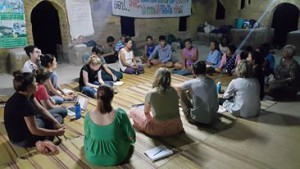
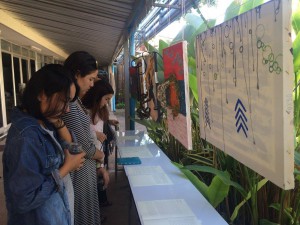
The DG program is based on an alternative education model that is both highly student-led and experience-based. Each semester, students participate in various units focused on a variety of development/globalization issues in Thailand. What these issues are changes every semester but in the case of my group, we have studied organic agriculture, water management, land rights, Laos (in comparison to Thailand), and mining.
Each unit is two weeks long, involves a research project, and is facilitated by a pair of students. The first week of each unit involves a few lectures related to the topic and a some “unit facilitator”-led sessions to prep for the unit trip. The second week is then spent in home stays in communities dealing with issues related to the unit topic. During our unit trips, we participate in a series of “exchanges,” interviewing a wide variety of people about their experiences.
When we return from our trips, we are responsible for creating a group “output” reflecting what we learned during the unit and the answers to our research questions. Outputs are a new aspect of the program that were only established last year and are very open-ended.
The outputs that our group has created this semester include:
- A 20-page report on the barriers to the organic farming movement in northeast Thailand
- A lesson plan about organic agriculture and how to be a conscious consumer
- A variety show-type performance about water management issues that included a spoken word poetry reading and an interpretive dance
- A series of info graphics on land rights issues
- A collection of art pieces reflecting issues of foreign dependency and national agency in Laos
- A briefing packet given to a delegation from the European Union before their site visit to a community negatively affected by a gold mine
In addition to these unit projects, we have also had conversational Thai classes, sessions with peer tutors from KKU, and a number of journalism assignments (profiles and features on the communities we visit, a photo essay on an individual from Khon Kaen, and an op-ed on an issue we’ve encountered in Thailand). Currently, we are in the process of completing our final projects. Proposed by the communities we visited throughout the semester, these projects range from a policy recommendation report on contract farming to a journalistic piece on traditional water buffalo raising practices in the region.
Life outside of class
While the program itself has taken up a significant amount of my time, it certainly hasn’t prevented me from other adventures and extracurricular pursuits. CIEE provides a variety of extracurricular opportunities for students outside the formally structured activities. For instance, I’ve been involved in designing and creating a magazine in collaboration with other CIEE students around the world as well as helping get a local dilapidated playground refurbished through a prison-community service program.
I’ve also had the chance to do quite a bit of traveling on the weekends and during our nine-day semester break. I’ve visited the cities of Chiang Mai, Nong Khai, and Bangkok, gone hiking in Leoi province and camping in Phu Pha Maan National Park, and spent a week in Seoul, South Korea. Even Khon Kaen has a wide variety of markets, restaurants, and festivals that have kept us sufficiently busy.
On the social front
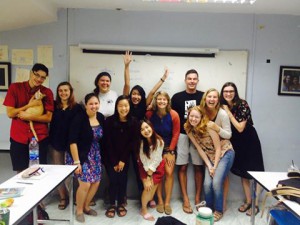
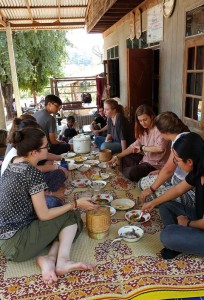
In addition to the CIEE staff, our peer tutors and roommates, and our host families, the biggest support group we have as DG students is each other. There are ten of us on the program this semester—two men and eight women (pretty typical numbers all around). And in a lot of ways, it is this group of people that have set the tone for my semester and determined the quality of my experience here. Due to the nature of the program, we are all together as a group all the time. We work together, have fun together, study together, eat together, get frustrated together, work out together, stress together, dance together, laugh together, and when we stay in the same home stays or are on long van rides, we even fall asleep together.
Fortunately, I ended up with a really fantastic group of people that I’ve really connected with and who are all very motivated and dedicated to the program. But not every group is this way, and that was a risk that each of us took going into it. Of course, everything is what you make of it (to an extent), but when you spend so much time with a group of people, they do tend to have an affect on your experience.
A word of advice
I can’t end this post without emphasizing that when you study abroad somewhere for four months, you’re signing up for four months of living somewhere new, not just visiting or touring it, and this program is no exception. Khon Kaen quickly becomes your home base, where you live your life with all life’s ups and downs, victories and struggles. Just because you’re on a fantastic program doesn’t mean you won’t have a few bad days and hard times mixed in.
Before I left, one of my friends who is an alumna of the program told me: “Just know that it isn’t going to be great all the time. But when things are hard, keep in mind that in the long run it’s helping your grow and become a stronger person.” I couldn’t have asked for better advice. And while her words have definitely been a huge comfort during those moments this semester that I’ve been frustrated, upset, or stressed, I’m happy to report that those moments have fortunately been few and far between.

